Governance und Finanzierung
Diese Forschungsgruppe untersucht traditionelle und moderne Ansichten über Corporate Governance auf den Finanzmärkten. Sie trägt dazu bei, die Wirksamkeit verschiedener Governance-Mechanismen bei der Auswahl von Talenten, der Schaffung von Anreizen und der Bindung an das Unternehmen zu verstehen. Die Gruppe untersucht auch, wie verschiedene Stakeholder die Corporate Governance beeinflussen.
Forschungscluster
Finanzresilienz und RegulierungIhr Kontakt

- Abteilung Finanzmärkte
Referierte Publikationen

Market Feedback Effect on CEO Pay: Evidence from Peers’ Say-on-Pay Voting Failures
in: Journal of Financial and Quantitative Analysis, im Erscheinen
Abstract
<p>We find that a firm’s stock price drops when its compensation peer firm announces a severe say-on-pay voting failure. This price drop causes a reduction in the focal firm CEO’s pay in the following period. The effect on CEO pay is stronger when the board of directors is more powerful, when the proxy advisor holds a negative view of the CEO’s pay, and when the hired compensation consultant is less reputable. Directors who cut their CEO’s pay following the price drop receive more voting support from investors than other directors. Our findings show that the peer firm’s voting failure induces a market-feedback effect for focal firm directors.</p>
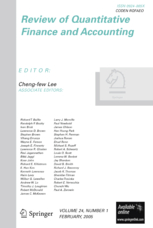
CEO Personality Traits and Compensation: Evidence from Investment Efficiency
in: Review of Quantitative Finance and Accounting, im Erscheinen
Abstract
<p>We examine the effects of the big five personalities of CEOs (openness, conscientiousness, extroversion, agreeableness, and neuroticism) on their annual compensation. We hand-collect the tweets of S&P 1500 CEOs and use IBM's Watson Personality Insights to measure their personalities. CEOs with high ratings of agreeableness and conscientiousness get more compensation. We further find that the firms with these CEOs outperform their peers due to better investment efficiency. Firms are willing to pay higher compensation for talent, especially for firms with better operations, located in states with higher labor unionization, or facing higher competition in the product market. Overall, CEO personality is a valid predictor of CEOs' compensation.</p>
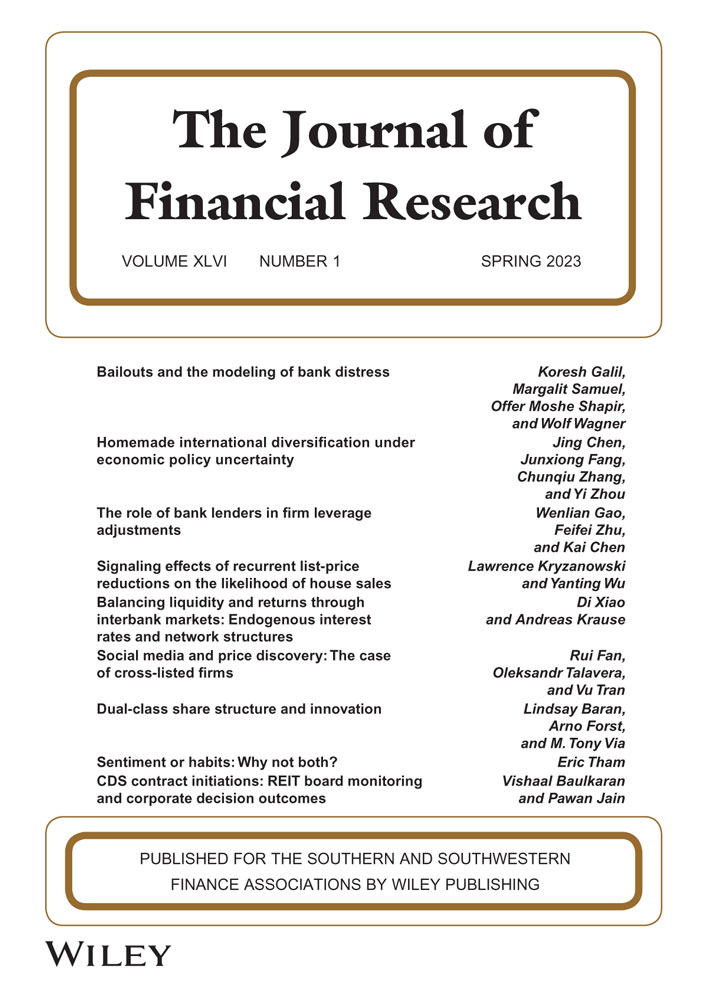
Social Connections and Information Leakage: Evidence from Target Stock Price Run-up in Takeovers
in: Journal of Financial Research, Nr. 2, 2025
Abstract
<p>Does information leakage in a target's social networks increase its stock price prior to a merger announcement? Evidence reveals that a target with more social connections indeed experiences a higher pre-announcement price run-up. This effect does not exist during or after the merger announcement, or in windows ending two months before the announcement. It is more pronounced among targets with severe asymmetric information, and weaker when the information about the upcoming merger is publicly available prior to the announcement. It is also weaker in expedited deals such as tender offers.</p>
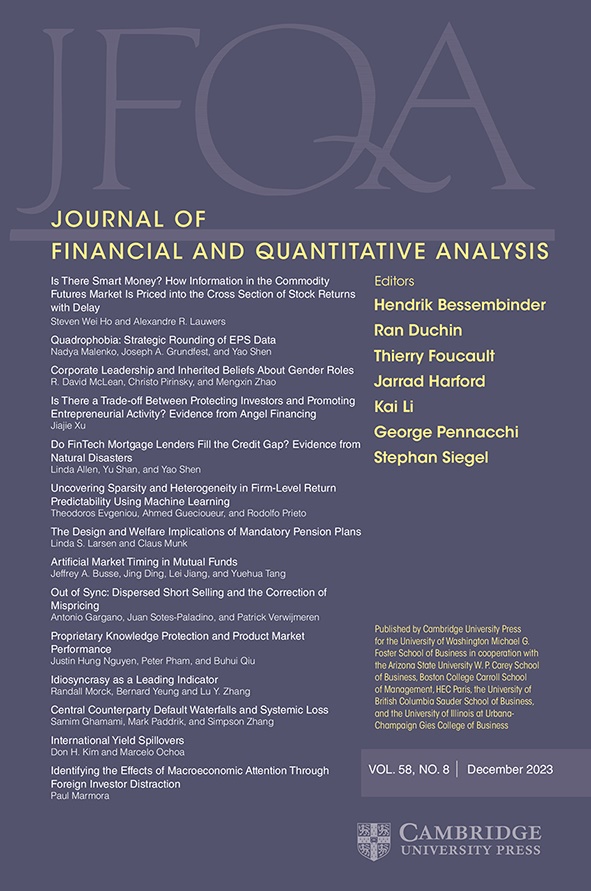
The Corporate Investment Benefits of Mutual Fund Dual Holdings
in: Journal of Financial and Quantitative Analysis, Nr. 2, 2025
Abstract
<p>Mutual fund families increasingly hold bonds and stocks from the same firm. We present evidence that dual ownership allows firms to increase valuable investments and refinance by issuing bonds with lower yields and fewer restrictive covenants, especially when firms face financial distress. Dual holders also prevent overinvestment by firms with entrenched managers. Overall, our results suggest that mutual fund families internalize the agency conflicts of their portfolio companies, highlighting the positive governance externalities of intra-family cooperation.</p>
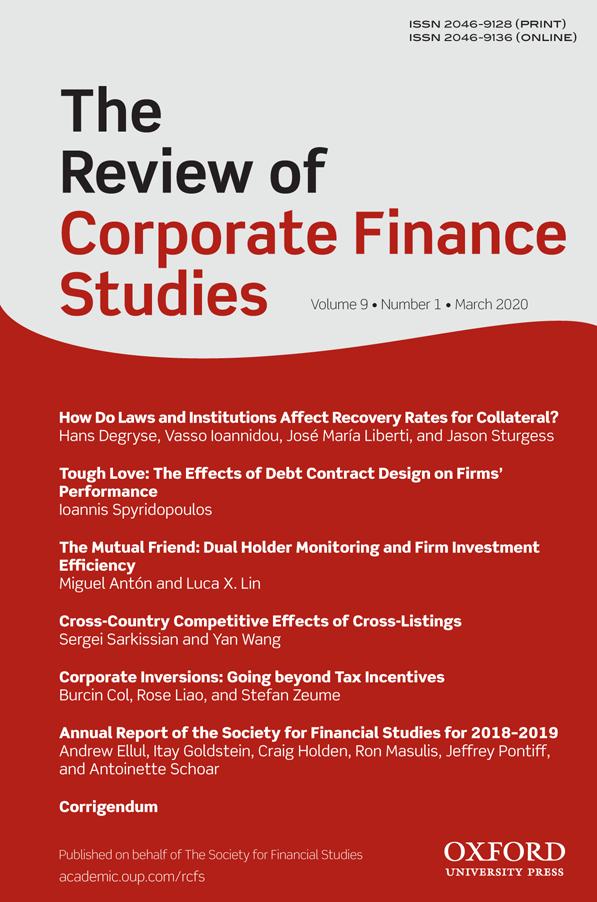
Creditor-control Rights and the Nonsynchronicity of Global CDS Markets
in: Review of Corporate Finance Studies, Nr. 1, 2025
Abstract
<p>We analyze how creditor rights affect the nonsynchronicity of global corporate credit default swap spreads (CDS-NS). CDS-NS is negatively related to the country-level creditor-control rights, especially to the “restrictions on reorganization” component, where creditor-shareholder conflicts are high. The effect is concentrated in firms with high investment intensity, asset growth, information opacity, and risk. Pro-creditor bankruptcy reforms led to a decline in CDS-NS, indicating lower firm-specific idiosyncratic information being priced in credit markets. A strategic-disclosure incentive among debtors avoiding creditor intervention seems more dominant than the disciplining effect, suggesting how strengthening creditor rights affects power rebalancing between creditors and shareholders.</p>
Arbeitspapiere
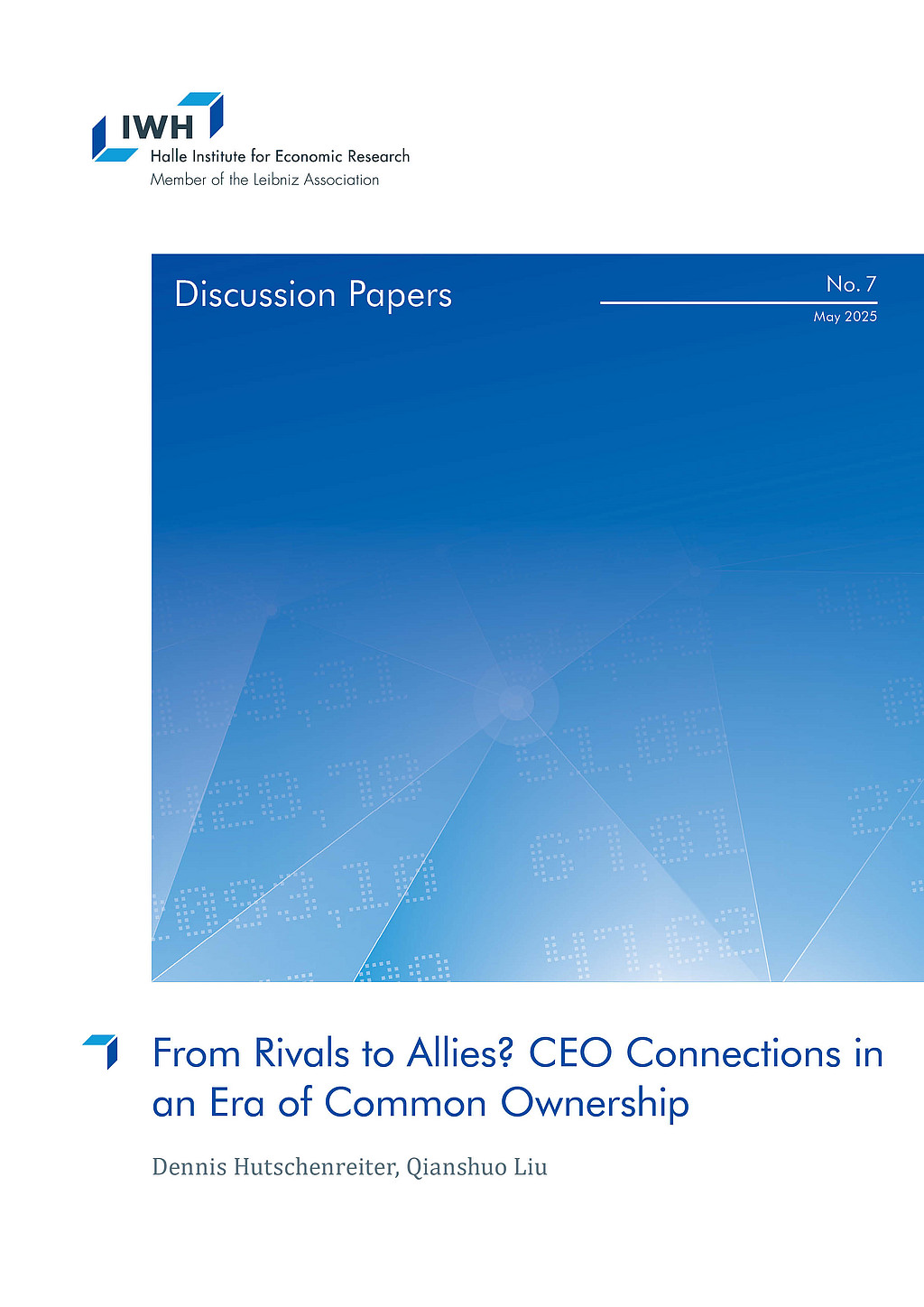
From Rivals to Allies? CEO Connections in an Era of Common Ownership
in: IWH Discussion Papers, Nr. 7, 2025
Abstract
<p>Institutional common ownership of firm pairs in the same industry increases the likelihood of a preexisting social connection among their CEOs. We establish this relationship using a quasi-natural experiment that exploits institutional mergers combined with firms’ hiring events and detailed information on CEO biographies. In addition, for peer firms, gaining a CEO connection from a hiring firm’s CEO appointment correlates with higher returns on assets, stock market returns, and decreasing product similarity between companies. We find evidence consistent with common owners allocating CEO connections to shape managerial decisionmaking and increase portfolio firms’ performance.</p>
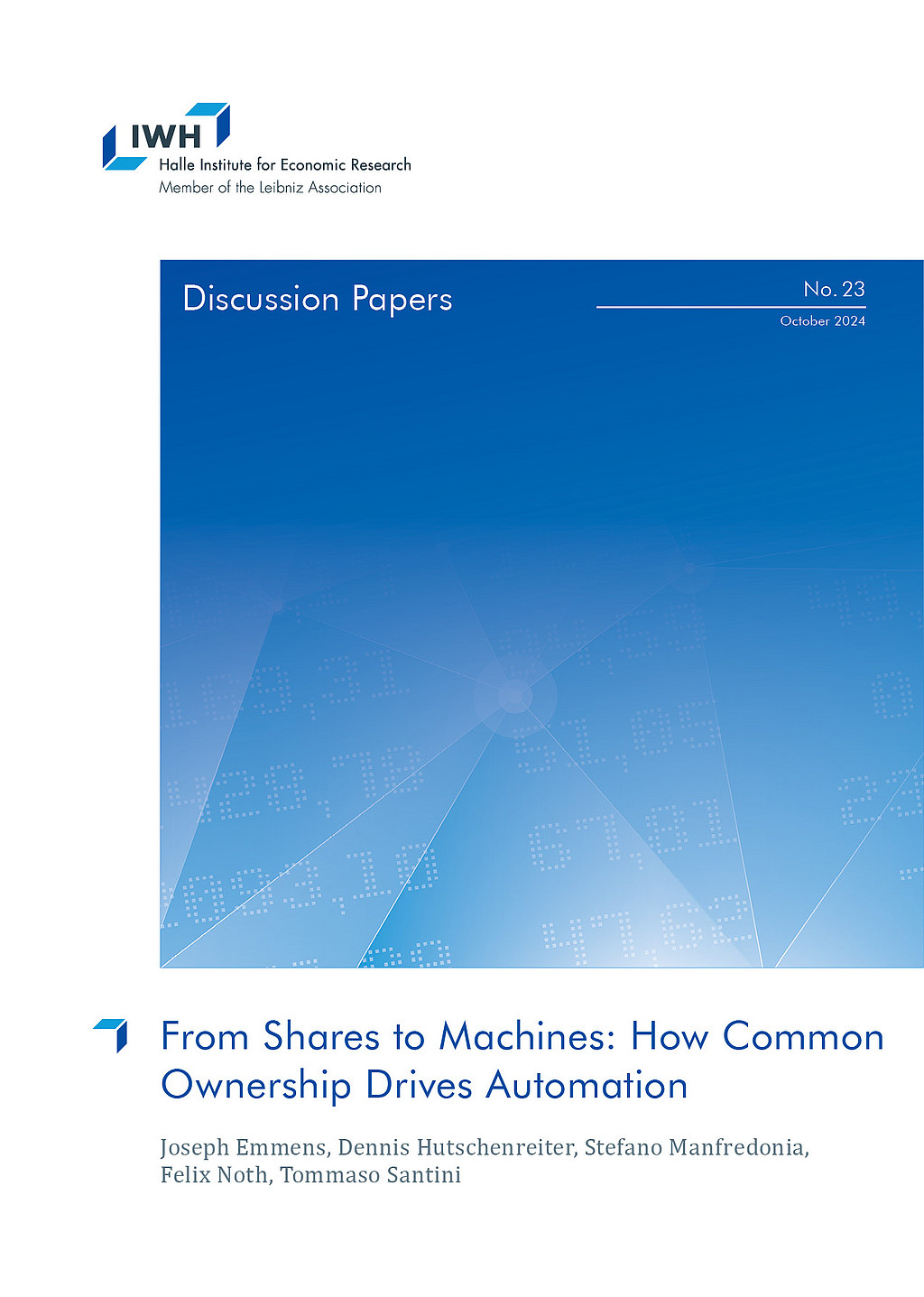
From Shares to Machines: How Common Ownership Drives Automation
in: IWH Discussion Papers, Nr. 23, 2024
Abstract
<p>Does increasing common ownership influence firms’ automation strategies? We develop and empirically test a theory indicating that institutional investors’ common ownership drives firms that employ workers in the same local labor markets to boost automation-related innovation. First, we present a model integrating task-based production and common ownership, demonstrating that greater ownership overlap drives firms to internalize the impact of their automation decisions on the wage bills of local labor market competitors, leading to more automation and reduced employment. Second, we empirically validate the model’s predictions. Based on patent texts, the geographic distribution of firms’ labor forces at the establishment level, and exogenous increases in common ownership due to institutional investor mergers, we analyze the effects of rising common ownership on automation innovation within and across labor markets. Our findings reveal that firms experiencing a positive shock to common ownership with labor market rivals exhibit increased automation and decreased employment growth. Conversely, similar ownership shocks do not affect automation innovation if firms do not share local labor markets.</p>
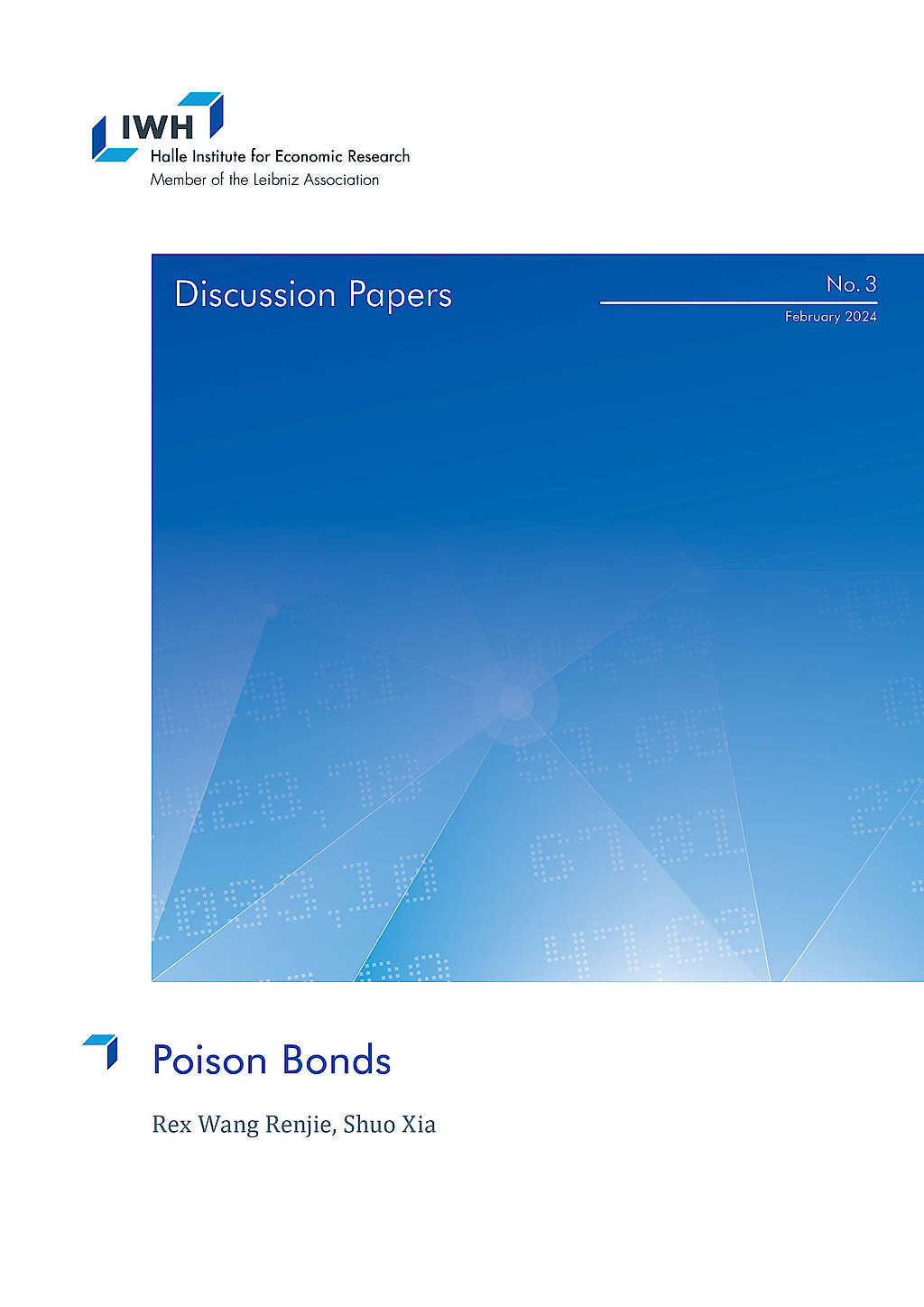
Poison Bonds
in: IWH Discussion Papers, Nr. 3, 2024
Abstract
This paper documents the rise of “poison bonds”, which are corporate bonds that allow bondholders to demand immediate repayment in a change-of-control event. The share of poison bonds among new issues has grown substantially in recent years, from below 20% in the 90s to over 60% since mid-2000s. This increase is predominantly driven by investment-grade issues. We provide causal evidence that the pressure to eliminate poison pills has led firms to issue poison bonds as an alternative. Our analysis suggests that this practice entrenches incumbent managers and destroys shareholder value. Holding a portfolio of firms that remove poison pills but promptly issue poison bonds results in negative abnormal returns of −7.3% per year. Our findings have important implications for the agency theory of debt: (i) more debt may not discipline the management; and (ii) even without financial distress, managerial entrenchment can lead to agency conflicts between shareholders and creditors.
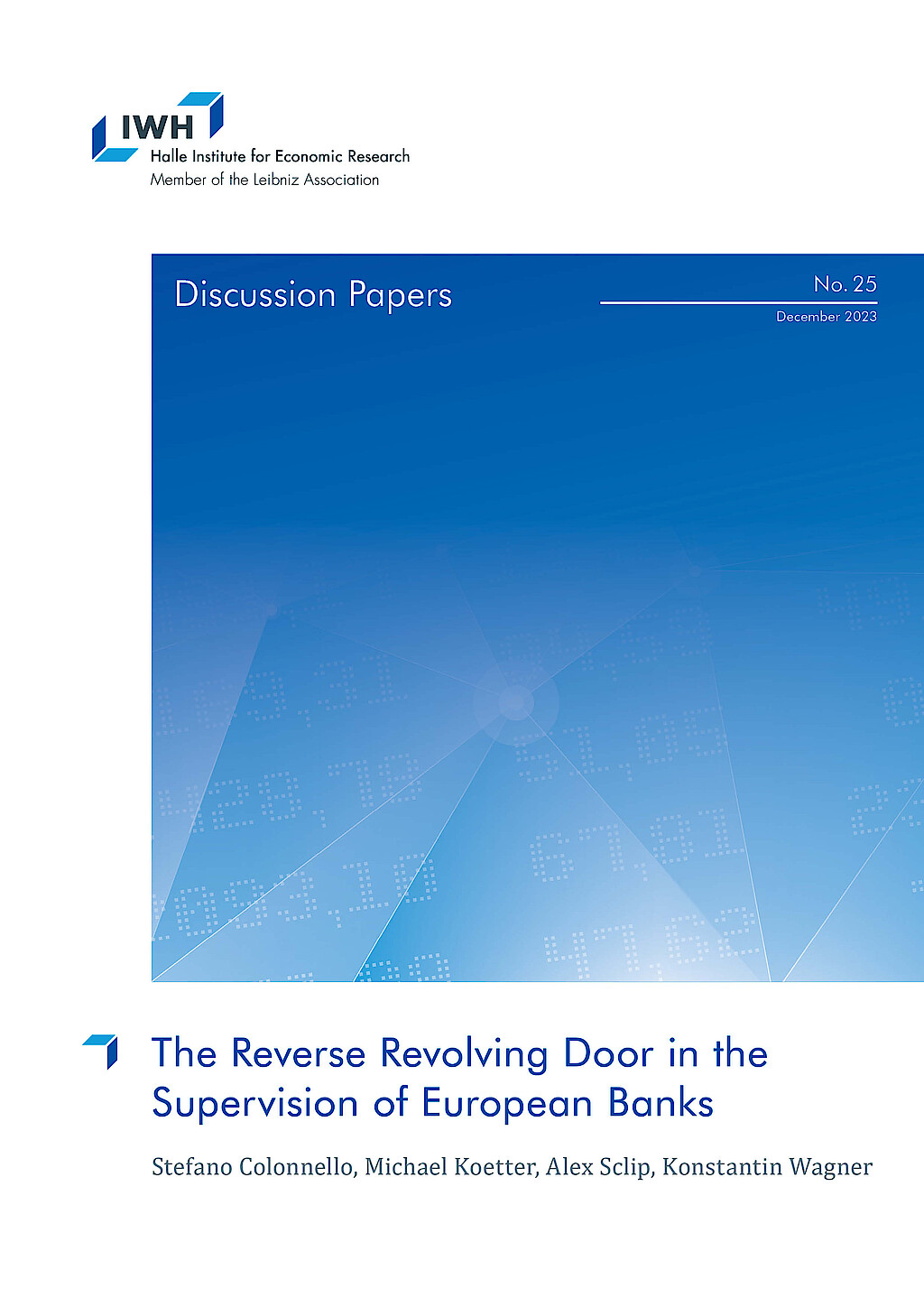
The Reverse Revolving Door in the Supervision of European Banks
in: IWH Discussion Papers, Nr. 25, 2023
Abstract
We show that around one third of executive directors on the boards of national supervisory authorities (NSA) in European banking have an employment history in the financial industry. The appointment of executives without a finance background associates with negative valuation effects. Appointments of former bankers, in turn, spark positive stock market reactions. This „proximity premium“ of supervised banks is a more likely driver of positive valuation effects than superior financial expertise or intrinsic skills of former executives from the financial industry. Prior to the inception of the European Single Supervisory Mechanism, the presence of former financial industry executives on the board of NSA associates with lower regulatory capital and faster growth of banks, pointing to a more lenient supervisory style.

Poison Bonds
in: SSRN Discussion Paper, 2023
Abstract
This paper documents the rise of "poison bonds", which are corporate bonds that allow bondholders to demand immediate repayment in a change-of-control event. The share of poison bonds among new issues has grown substantially in recent years, from below 20% in the 90s to over 60% after 2005. This increase is predominantly driven by investment-grade issues. We provide causal evidence that the pressure to eliminate poison pills has led firms to issue poison bonds as an alternative. Further analyses suggest that this practice entrenches incumbent managers, coincidentally benefits bondholders, but destroys shareholder value. Holding a portfolio of firms that remove poison pills but promptly issue poison bonds results in negative abnormal returns of -7.3% per year. Our findings have important implications for understanding the agency benefits and costs of debt: (1) more debt does not necessarily discipline the management; and (2) even without financial distress, managerial entrenchment can lead to conflicts between shareholders and creditors.










